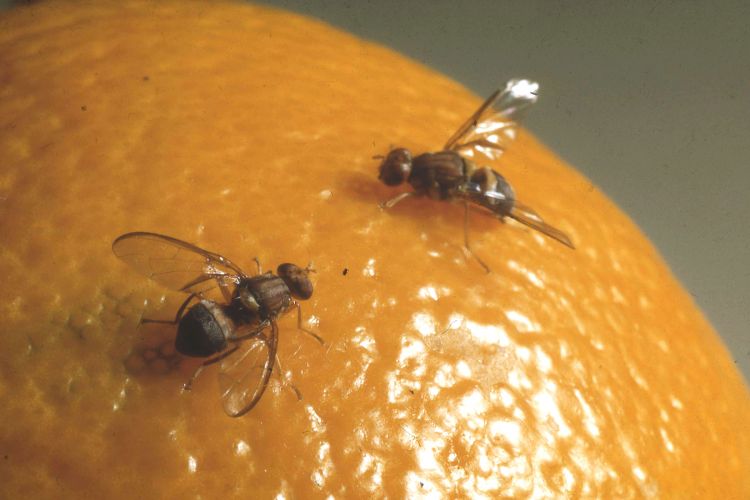In a surprising revelation that unveils the intricate connections between social interactions and aging, scientists have uncovered that fruit flies, Drosophila melanogaster, experience accelerated aging and a shortened lifespan when exposed to the sight of deceased members of their own species. The phenomenon sheds light on a previously unknown aspect of these tiny creatures’ biology and potentially offers insights into broader ecological and evolutionary dynamics.
The groundbreaking research, led by a team of scientists, has pinpointed the role of specific brain cells known as R2 and R4 neurons in mediating this eerie effect. These neurons are integral in processing olfactory cues, particularly pheromones released by dead flies. The study, published in the journal Nature Communications, suggests that the presence of these pheromones triggers a cascade of responses within the flies, initiating a stress response that subsequently influences various aspects of their physiology.
Dr. Elena Martinez, lead researcher of the study, explains, “The R2 and R4 neurons play a critical role in detecting the chemical signals from deceased flies. This activates a stress response in the living flies, affecting their metabolism, immune system, and overall lifespan.” The stress response likely evolved as a defense mechanism, aiding fruit flies in avoiding areas with high mortality rates, which may pose increased risks of infection or predation.

The research, conducted through a combination of behavioral experiments, genetic manipulation, and molecular analyses, has illuminated the intricate web of connections between social cues and biological responses. Fruit flies exposed to the presence of dead conspecifics exhibited accelerated signs of aging, including reduced mobility, increased oxidative stress, and compromised immune functions.
“The implications of this study are far-reaching,” comments Dr. Sarah Williams, a prominent evolutionary biologist not involved in the research. “It showcases the remarkable adaptability of even the tiniest organisms to their environment. Moreover, it highlights the complexity of the interplay between behavior, neurobiology, and lifespan.”
While the exact mechanism behind the stress response remains to be fully deciphered, the findings carry potential implications for understanding aging processes in other organisms, including humans. The study opens doors to investigating whether similar mechanisms exist in higher organisms and whether social cues could play a role in shaping lifespan and healthspan.
The discovery also resonates within the context of broader ecological dynamics. “Understanding the connections between social behavior and longevity can provide insights into the dynamics of populations and the factors that influence mortality in the wild,” says Dr. Carlos Mendez, an ecologist specializing in insect populations.
In a world where the complexities of life and death continue to unravel, this study serves as a reminder that even the most seemingly insignificant interactions can hold profound consequences. The tale of the fruit flies and their response to the presence of deceased companions serves as a captivating example of nature’s mysteries, inviting further exploration into the intricate web of connections that govern life and death in the animal kingdom.

Resources:
1.https://www.newscientist.com/article/2378079-flies-die-sooner-if-they-see-dead-flies/
2.https://cosmosmagazine.com/science/biology/fruit-flies-death-aging/v
3.https://www.sciencealert.com/seeing-dead-flies-makes-other-flies-die-faster-but-why
4.https://www.msn.com/en-us/news/technology/flies-die-sooner-if-they-see-dead-flies/ar-AA1cv4Ii